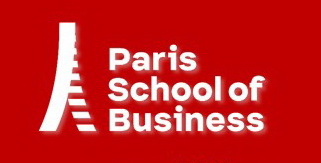Session at the RGS-IBG 2016 annual conference
Open Creative Labs. Curated encounters for creativity, work and resilience
This call prepares a session of the Royal Geographic Society 2016 Annual Conference.
The conference will be held in London, UK, fropm Aug 30th to Sep 2nd, 2016.
Convenors:
- Suntje SCHMIDT, Leibnitz Institute for Regional Developmant and Structural Planning, email: suntje.schmidt (at) irs-net.de
- Ignasi CAPIDEVILA, PSB / newPIC, email: i.capdevila (at) psbedu.paris
Deadlines
- 05-FEB-2016: Abstract (250-300 words)
Text of the call
In recent years we have been observing the establishment of new places such as maker spaces, fab labs, coworking spaces,
hacker spaces or living labs. A project funded by the German Ministry of Education and Research subsumes this variety under the heading
“Open Creative Labs” (Ibert, 2015). Conceptualizations of such places are still quite tentative in scientific debates, but four distinguished
features seem to offer a conceptual frame for these spatial phenomena:
- (1) In more or less permanent (primarily inner-city) locations Open Creative Labs offer spaces, technological devices, and services
to a wide range of user / prosumers (Walter-Herrmann and Büching, 2013) on a temporary basis.
- (2) Despite their openness they are highly curated (by design, by organized events or available technologies) and are therefore
attractive for selected communities only while implicitly excluding others (Merkel, 2014).
- (3) Material and virtual worlds coexist in these places. Work-, creativity-, or leisure-related activities often combine both through advanced
technologies (most often 3D printing and laser cutting).
- (4) The places usually understand themselves as learning contexts where the boundaries between places for work and places for leisure blur
(Olma, 2012, Oldenburg, 1989).
The increasing international distribution of such hybrid spaces raises research questions that so far have rarely been addressed
in economic geography. First, even though first tentative typologies of such places emerge (Schmidt et al., 2014), we still know little about
their governance structures and user composition. Equally, little is known about the motivations of hosting Open Creative Labs and using them.
Second, taking the increasing number of Labs as an indication for something valuable and new is emerging, we know little about value creating
practices and the nature of value, because so far the discourse seems to be dominated by being focused on the technology rather than the communities
using it. Similarly, there is little knowledge on what role Open Creative Labs play in time-spatial innovation processes or creativity driven
value creation processes. And third, even though labs seemingly are attracted by urban, diversified contexts (at least in western cultures),
we need to question the link between the place and the territory (Capdevila, 2015).
Paper could, for example, address following questions (but this list is not exhaustive):
- How are Open Creative Labs utilized for creativity-driven work?
- How do Labs function as boundary spanners across societal and professional boundaries?
- What (temporary) functions are fulfilled by Open Creative Labs?
- How can Labs contribute to the resilience of territories?
- Which are the urban / territorial policy implications of the emergence of Labs?
- Which are the dynamics of collective creativity, innovation and collaboration taking place inside Labs?
- How do localized communities emerge? How to Labs’ members relate to each other at a local and global scale?
- (list not limitative)
The conveners welcome either conceptually or empirically focused papers across the range of topics raised above. In line with this year’s
conference theme “nexus thinking” we are welcoming interdisciplinary approaches to the topic and are looking forward also to papers addressing
issues on policy relevance, urban and regional development, and societal impact of Open Creative Labs.
Bibliography
- CAPDEVILA, I. 2015. "Co-Working Spaces and the Localised Dynamics of Innovation in Barcelona". International Journal of Innovation Management, 19(3).
- IBERT, O. 2015. "Open Creative Labs. Local Anchors in translocal knowledge communities" (unpublished manuscript). ITA Forum 2015, 2015 Berlin, 19.-20.11.2015.
- MERKEL, J. 2014. "Gardening Urban Work Environments or How to curate Coworking Spaces."
- OLDENBURG, R. 1989. "The Great Good Place: Cafes, Coffee Shops, Community Centers, Beauty Parlors, General Stores,
Bars, Hangouts and How They Get You Through the Day", New York.
- OLMA, S. 2012. The Serendipity Machine: A disruptive Business Model for Society 3.0, Amersfoort, Lindonk & De Bres.
- SCHMIDT, S., BRINKS, V. & BRINKHOFF, S. 2014. "Innovation and Creativity Labs in Berlin – Organizing Temporary Spatial Configurations
for Innovations." Zeitschrift für Wirtschaftsgeographie, 58, 232 - 247.
- WALTER-HERRMANN, J. & BÜCHING, C. 2013. Notes on FabLabs. In: WALTER-HERRMANN, J. & BÜCHING, C. (eds.)
FabLab: Of Machines, Makers and Inventors. Bielefeld: Transcript.
This page will be regularly updated with information for authors.
The workshop program will be posted here once available.









